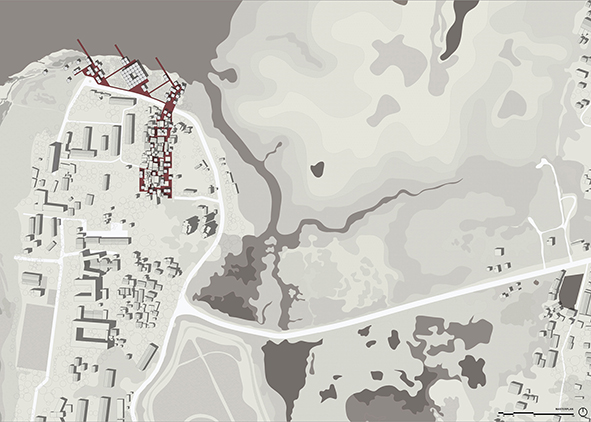Sulla reversibilità e temporaneità architettonica nei contesti di marginalità
DOI:
https://doi.org/10.19229/2464-9309/4112018Parole chiave:
paesi emergenti, precarietà, temporaneità, prototipo, sperimentazioneAbstract
L’articolo illustra la ricerca sperimentale condotta in contesti di emergenza e in Paesi in via di sviluppo avente come campo di indagine lo studio di architetture temporanee di tipo sanitario, culturale e sociale. I criteri guida della proposta sono costruiti attorno alle emergenze, alle calamità naturali, e alla diffusa esigenza, in particolari situazioni contingenti, dell’ospitalità transitoria e permanente, criticità, queste, che possono riguardare trasversalmente e contemporaneamente diverse categorie sociali. Questo saggio si propone di individuare alcuni principi che hanno ispirato proposte di intervento in diversi ambiti, dall’Africa Sub-Sahariana al Medio Oriente, al Sud-Est Asiatico, dove il tema della temporaneità e dell’emergenza viene declinato in modo diverso in riferimento alla tipicità del contesto di riferimento.
Downloads
##plugins.generic.articleMetricsGraph.articlePageHeading##
Riferimenti bibliografici
Bologna, R. (ed.) (2002), La reversibilità del costruire – L’abitazione transitoria in una prospettiva sostenibile, Maggioli, Rimini.
Canella, G. (1966), Il sistema teatrale a Milano, Dedalo libri, Bari.
Canella, G. (1978), “Assumere l’emergenza che non finisce”, in Hinterland, n. 5-6, pp. 2-3.
Falasca, C. (2000), Architettura ad assetto variabile – Modelli evolutivi per l’habitat provvisorio, Alinea, Firenze.
Neutra, R. (1948), Arquitetura social em paises de clima quente, Gerth Todtmann, São Paulo.
Ramahi, H. (2015), Education in Palestine – Current Challenges and Emancipatory Alternatives, The American School of Palestine and University of Cambridge, El-Bireh.
Semerani, L. (1978), “Ricostruzione senza Rinascita”, in Hinterland, n. 5-6, pp. 4-8.

##submission.downloads##
Pubblicato
Come citare
Fascicolo
Sezione
Licenza
AGATHÓN è pubblicata sotto la licenza Creative Commons Attribution License 4.0 (CC-BY).
License scheme | Legal code
Questa licenza consente a chiunque di:
Condividere: riprodurre, distribuire, comunicare al pubblico, esporre in pubblico, rappresentare, eseguire e recitare questo materiale con qualsiasi mezzo e formato.
Modificare: remixare, trasformare il materiale e basarti su di esso per le tue opere per qualsiasi fine, anche commerciale.
Alle seguenti condizioni
Attribuzione: si deve riconoscere una menzione di paternità adeguata, fornire un link alla licenza e indicare se sono state effettuate delle modifiche; si può fare ciò in qualsiasi maniera ragionevole possibile, ma non con modalità tali da suggerire che il licenziante avalli l'utilizzatore o l'utilizzo del suo materiale.
Divieto di restrizioni aggiuntive: non si possono applicare termini legali o misure tecnologiche che impongano ad altri soggetti dei vincoli giuridici su quanto la licenza consente di fare.
Note
Non si è tenuti a rispettare i termini della licenza per quelle componenti del materiale che siano in pubblico dominio o nei casi in cui il nuovo utilizzo sia consentito da una eccezione o limitazione prevista dalla legge.
Non sono fornite garanzie. La licenza può non conferire tutte le autorizzazioni necessarie per l'utilizzo che ci si prefigge. Ad esempio, diritti di terzi come i diritti all'immagine, alla riservatezza e i diritti morali potrebbero restringere gli usi del materiale.


















































































